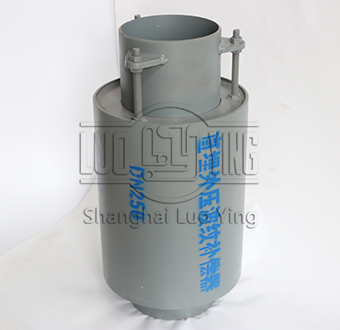External pressure corrugated compensator has superb bending resistance to prevent pipe sinking.
Jul-23-08
External pressure corrugated compensator has superb bending resistance to prevent pipe sinking. External pressure corrugated compensators, also known as external pressure bellows, play a crucial role in a variety of piping systems. One of their key features is their superb bending resistance, which helps to prevent pipe sinking and ensure the integrity and functionality of the overall system. In this response, we will explore why external pressure corrugated compensators exhibit excellent bending resistance and how they effectively prevent pipe sinking.
External pressure corrugated compensators are designed to compensate for axial, lateral, and angular movements in piping systems caused by thermal expansion, vibration, and settlement. They consist of a metal bellows, which is typically made of stainless steel, and are installed externally on the piping system.
The superb bending resistance of external pressure corrugated compensators can be attributed to their specific design and the material properties of the metal bellows. Here are some factors that contribute to their ability to prevent pipe sinking:
1 . Corrugated Structure: External pressure corrugated compensators feature a series of parallel convolutions along the length of the bellows. These corrugations provide flexibility and allow the compensator to absorb movement in multiple directions, including bending. The corrugations act as a spring, distributing the forces of movement evenly and preventing excessive stress concentration in one area.
2 . Metal Bellows Material: The metal bellows used in external pressure compensators are typically made of stainless steel, which offers excellent mechanical properties. Stainless steel is highly resistant to bending, exhibiting high tensile strength and elasticity. This inherent material strength allows the compensators to withstand bending forces without undergoing permanent deformation or failure.

4 . Thick-Walled Construction: External pressure bellows are often designed with thick-walled construction, which further enhances their bending resistance. The thick-walled design allows the compensator to withstand high internal and external pressures and minimizes the risk of buckling or collapsing under bending forces.
By virtue of their superb bending resistance, external pressure corrugated compensators effectively prevent pipe sinking. When a pipe system experiences thermal expansion or settlement, the compensator flexes and absorbs the movement, allowing the pipe to move without exerting excessive stress. This prevents the pipes from sinking or becoming misaligned, ensuring the smooth operation of the system and minimizing the risk of leaks or failures.
In conclusion, external pressure corrugated compensators exhibit excellent bending resistance due to their corrugated structure, material properties, reinforcement layers, and thick-walled construction. These compensators play a vital role in piping systems by accommodating movement and preventing pipe sinking, ensuring the overall integrity and functionality of the system.

